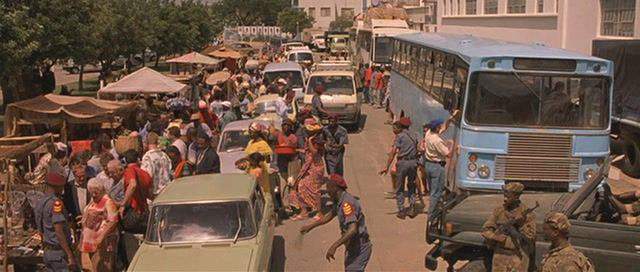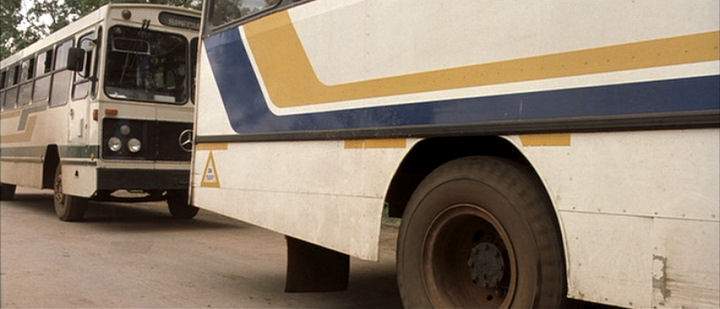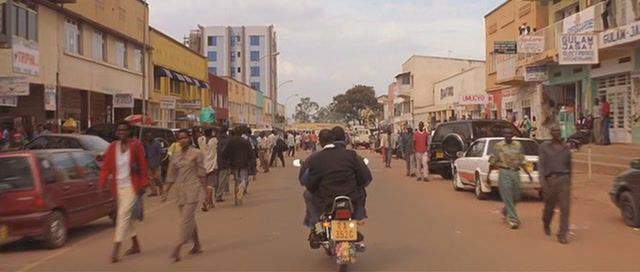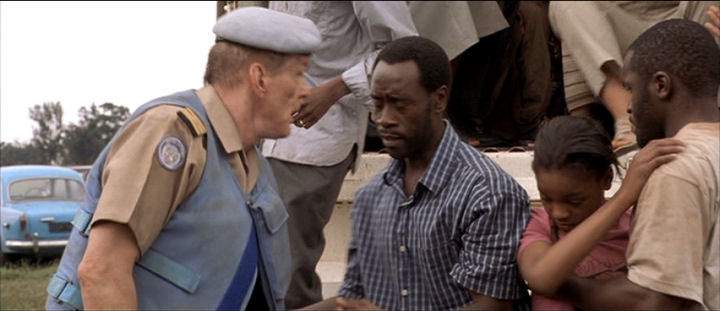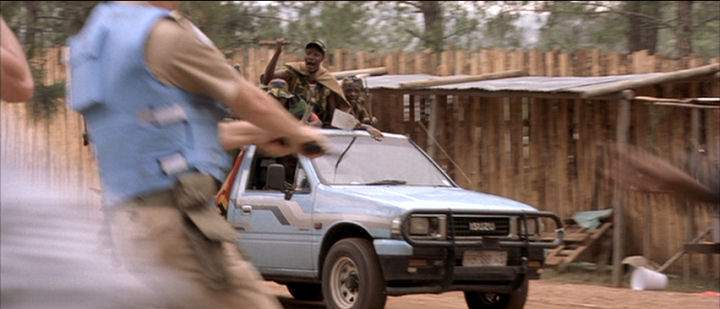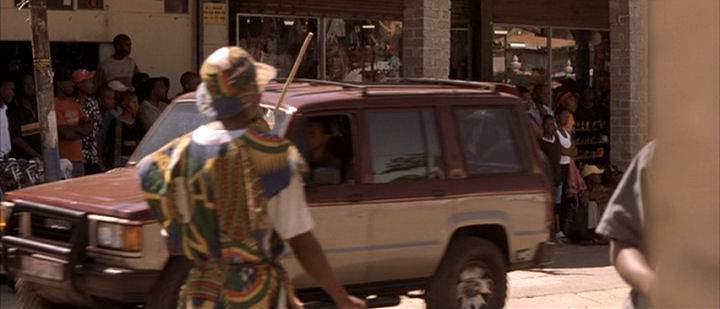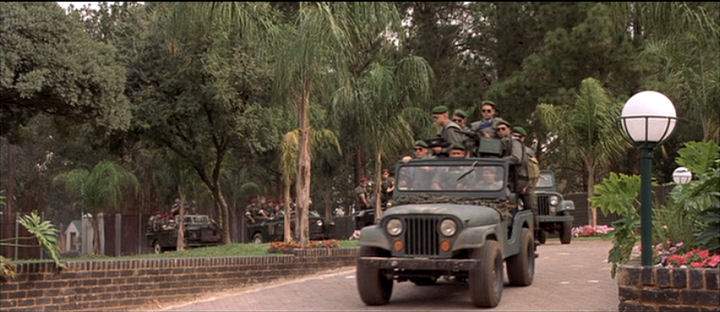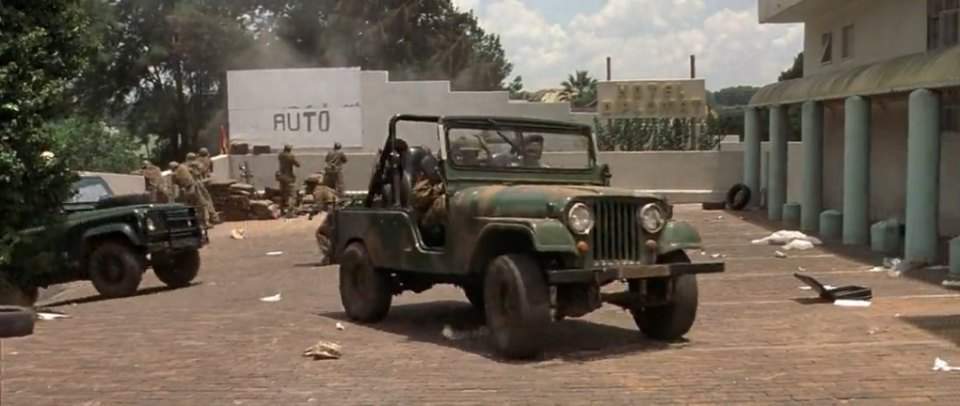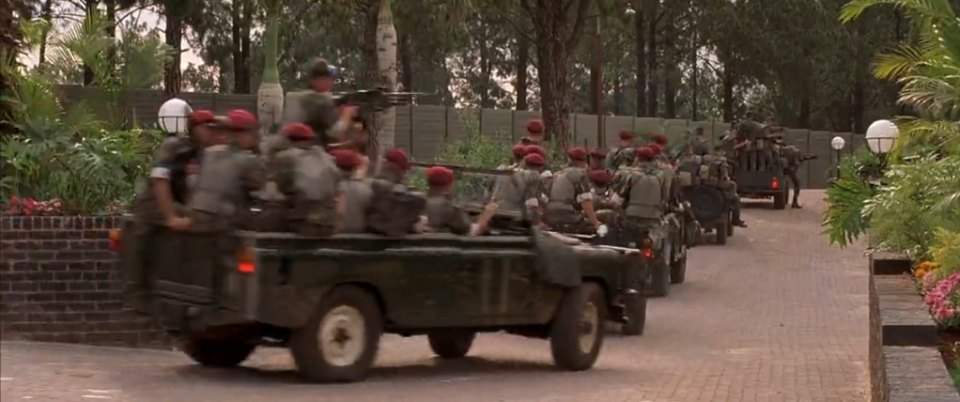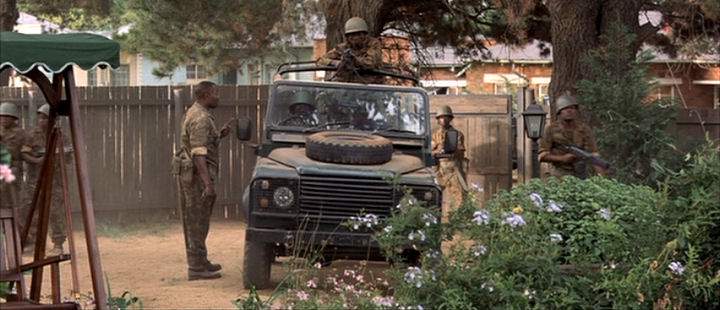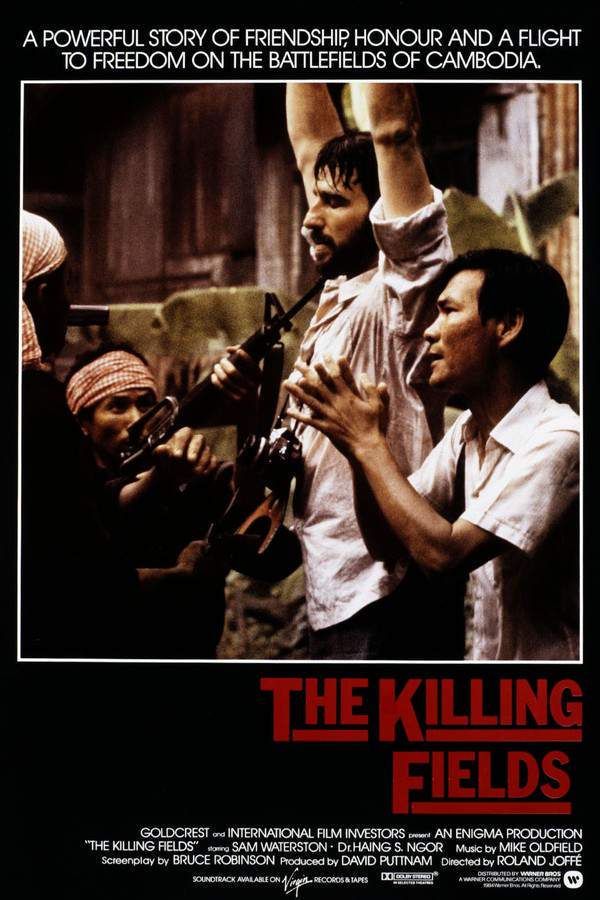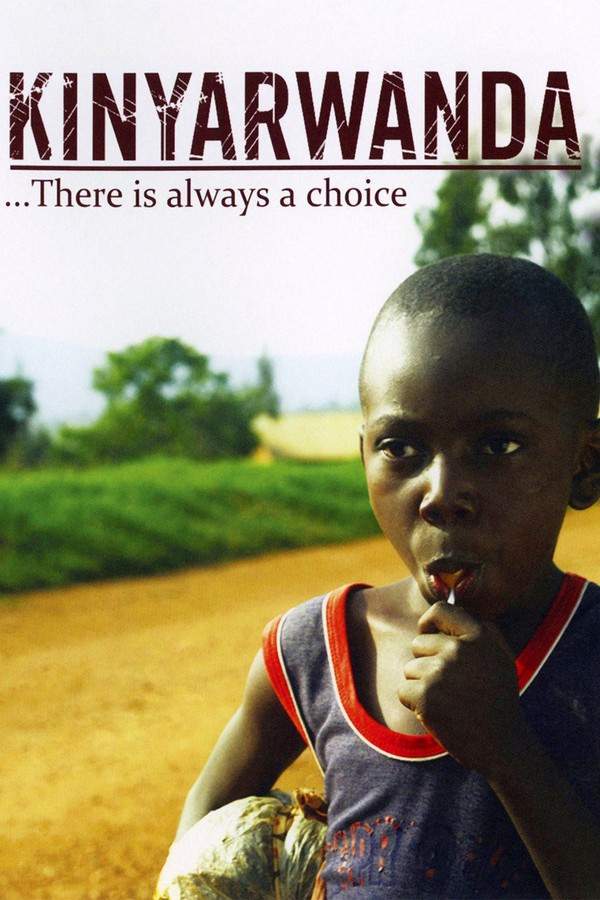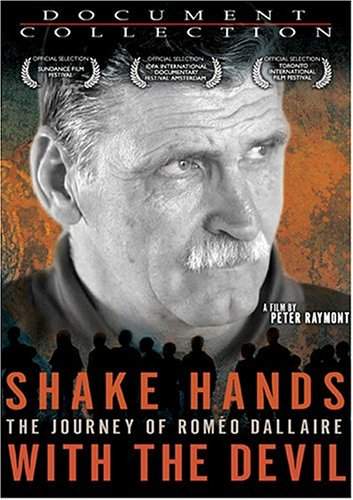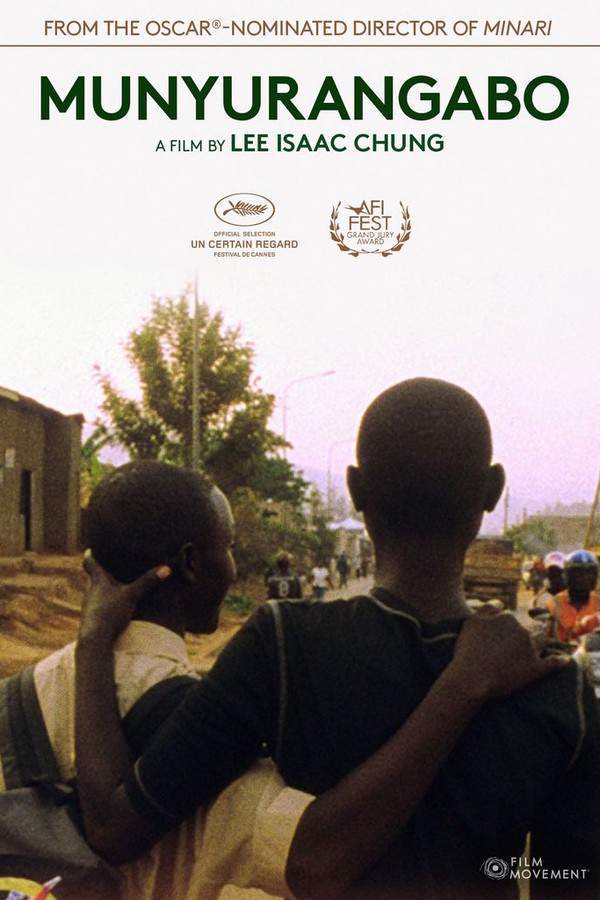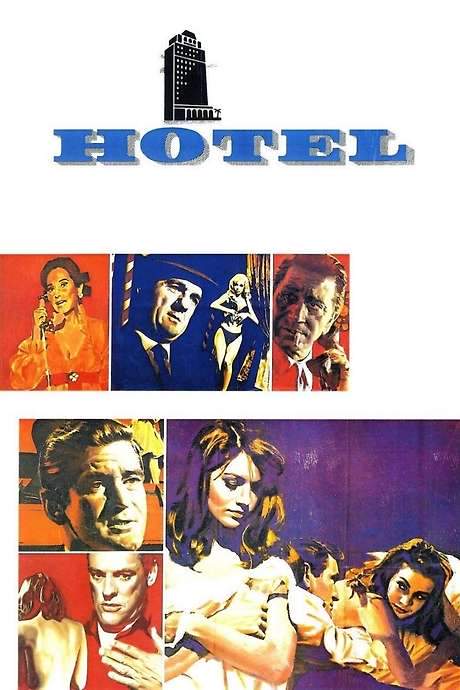Hotel Rwanda 2004
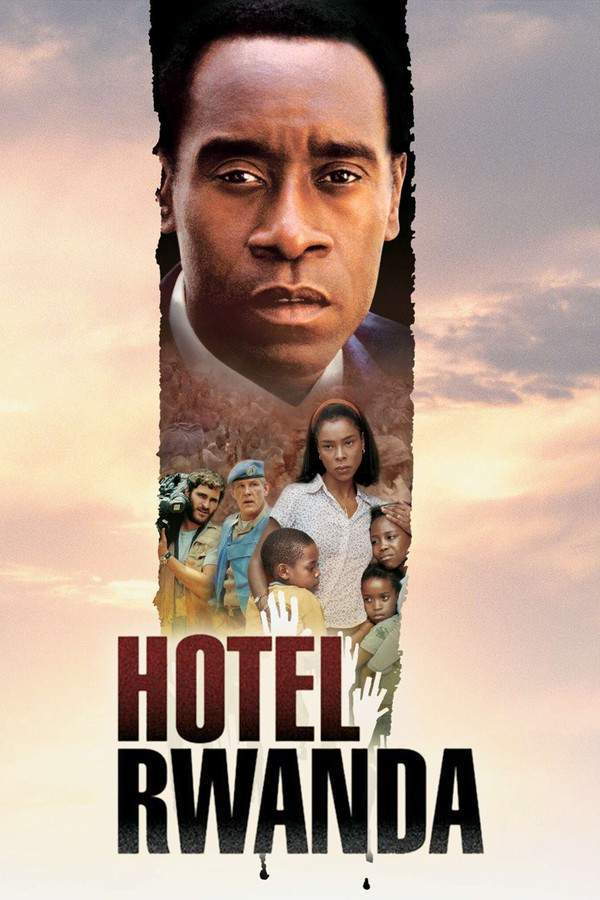
During the Rwandan genocide, hotel manager Paul Rusesabagina risks everything to shelter and protect over a thousand Tutsi refugees within the hotel he manages. Facing immense pressure and escalating violence, he must use all his courage and ingenuity to shield those seeking safety, defying the authorities and confronting the horrific reality of the ethnic cleansing unfolding around him. The lives of the refugees, and Paul's own, are in constant peril as he fights to maintain hope amidst the chaos.
Does Hotel Rwanda have end credit scenes?
No!
Hotel Rwanda does not have end credit scenes. You can leave when the credits roll.
Meet the Full Cast and Actors of Hotel Rwanda
Explore the complete cast of Hotel Rwanda, including both lead and supporting actors. Learn who plays each character, discover their past roles and achievements, and find out what makes this ensemble cast stand out in the world of film and television.
External Links and Streaming Options
Discover where to watch Hotel Rwanda online, including streaming platforms, rental options, and official sources. Compare reviews, ratings, and in-depth movie information across sites like IMDb, TMDb, Wikipedia or Rotten Tomatoes.
Ratings and Reviews for Hotel Rwanda
See how Hotel Rwanda is rated across major platforms like IMDb, Metacritic, and TMDb. Compare audience scores and critic reviews to understand where Hotel Rwanda stands among top-rated movies in its genre.

79
Metascore
8.1
User Score


91%
TOMATOMETER

94%
User Score

8.1 /10
IMDb Rating

77
%
User Score
Take the Ultimate Hotel Rwanda Movie Quiz
Challenge your knowledge of Hotel Rwanda with this fun and interactive movie quiz. Test yourself on key plot points, iconic characters, hidden details, and memorable moments to see how well you really know the film.
Hotel Rwanda Quiz: Test your knowledge on the gripping story of Paul Rusesabagina and the events of Hotel Rwanda.
Who is the main character of Hotel Rwanda?
Paul Rusesabagina
Colonel Oliver
George Rutaganda
Tatiana Rusesabagina
Show hint
Awards & Nominations for Hotel Rwanda
Discover all the awards and nominations received by Hotel Rwanda, from Oscars to film festival honors. Learn how Hotel Rwanda and its cast and crew have been recognized by critics and the industry alike.
59th British Academy Film Awards 2006
Best Original Screenplay
77th Academy Awards 2005


Writing (Original Screenplay)
10th Critics' Choice Awards 2005
Best Picture

11th Screen Actors Guild Awards 2005


Outstanding Performance by a Cast in a Motion Picture
62nd Golden Globe Awards 2005
Best Motion Picture – Drama

3rd Irish Film & Television Awards 2005
Best Script
2004 Toronto International Film Festival Awards 2004
Full Plot Summary and Ending Explained for Hotel Rwanda
Read the complete plot summary of Hotel Rwanda, including all major events, twists, and the full ending explained in detail. Explore key characters, themes, hidden meanings, and everything you need to understand the story from beginning to end.
In the heart-wrenching backdrop of 1994 Rwanda, a catastrophic genocide saw nearly one million Tutsi people systematically slaughtered by Hutu soldiers amid a struggle for land ownership. A sanctuary emerged when approximately 1,000 Tutsi refugees found refuge in a luxurious hotel in central Kigali, owned by Sabena Airlines. At the forefront of this desperate plight was Paul Rusesabagina, played by Don Cheadle, who took on the monumental responsibility of safeguarding these vulnerable lives during the relentless assaults by Hutu forces.
“The Tutsi were collaborators for the Belgian colonists, they stole our Hutu land…”
Paul, a Hutu himself and husband to a Tutsi woman named Tatiana portrayed by Sophie Okonedo, struggles with the dangerous privilege of his position as the hotel manager. Upon arriving home one evening, Paul finds his wife’s brother and his family visiting. However, the tranquility is shattered when their son runs in with dreadful news: armed soldiers are wreaking havoc outside.
As chaos consumes the streets, Hutu soldiers target Tutsi homes, indiscriminately killing inhabitants and abducting women to serve as sex slaves. Paul discovers that Tatiana is hiding their Tutsi neighbors in their house, desperately seeking protection. The next day, confronted by Hutu soldiers demanding money and supplies, Paul cleverly negotiates for the refugees’ lives by posing them as family members. He uses his resources—$1,000 and jewelry—to secure their safety, a temporary reprieve amidst the rising tension.
In the shadows of this turmoil, David, a Scottish journalist, and his American cameraman, Jack, bear witness to the horrific brutality, documenting the atrocities inflicted upon the Tutsi population. Colonel Oliver, a Canadian UN official, bravely attempts to offer some measure of protection by placing guards at the hotel gates. Meanwhile, Pat Archer, an Australian Red Cross worker, seeks to bring the remaining children from a Tutsi orphanage, revealing the dire situation for Tutsi children, who are at risk of annihilation.
As the situation escalates, the hotel transforms into a makeshift refugee camp, where supplies dwindle, and despair looms. Desperate for aid, Paul and another hotel employee, Gregoire, venture into Hutu territory to procure essential supplies. The horrors continue to unfold when they encounter a road littered with the bodies of the slain, a stark reminder of the genocide’s brutality.
In a dramatic turn of events, a Hutu Lieutenant demands Paul evacuate all the refugees. However, a timely radio communication regarding Belgian soldiers en route elicits a hasty retreat from the Hutu forces, allowing Paul to arrange for some refugees to escape. When Pat returns, she shares harrowing news about many being unaccounted for, propelling Paul to make a heart-wrenching decision to send his family away without him.
As their escape unfolds, danger escalates, with Hutu soldiers surrounding the convoy, leading to a frantic standoff. Paul musters courage, reaching out to General Augustin Bizimungo, a Hutu General complicit in the genocide, for assistance—a choice that highlights the depths of his desperation. Amidst ongoing chaos, their survival hangs by a thread, with supplies rapidly depleting as they resort to drinking pool water.
Eventually, Colonel Oliver orchestrates an escape, exuding hope as they leave the hotel, but not without fierce resistance from Hutu soldiers. In a moment of unyielding determination, Paul, Tatiana, and their children rally with some orphaned children, signifying resilience against the tide of tragedy.
As the film draws to a close, the aftermath reveals the enduring scars left by the genocide. Paul, Tatiana, and the children ultimately forge a new life in Belgium, and the world learns the sobering truth behind the journey of survival against overwhelming odds. Paul managed to protect over one thousand refugees, a testament to the strength of human spirit amidst despair.
Uncover the Details: Timeline, Characters, Themes, and Beyond!

Coming soon on iOS and Android
The Plot Explained Mobile App
From blockbusters to hidden gems — dive into movie stories anytime, anywhere. Save your favorites, discover plots faster, and never miss a twist again.
Sign up to be the first to know when we launch. Your email stays private — always.
Watch Trailers, Clips & Behind-the-Scenes for Hotel Rwanda
Watch official trailers, exclusive clips, cast interviews, and behind-the-scenes footage from Hotel Rwanda. Dive deeper into the making of the film, its standout moments, and key production insights.
Cars Featured in Hotel Rwanda
Explore all cars featured in Hotel Rwanda, including their makes, models, scenes they appear in, and their significance to the plot. A must-read for car enthusiasts and movie buffs alike.
Hotel Rwanda Themes and Keywords
Discover the central themes, ideas, and keywords that define the movie’s story, tone, and message. Analyze the film’s deeper meanings, genre influences, and recurring concepts.
Hotel Rwanda Other Names and Titles
Explore the various alternative titles, translations, and other names used for Hotel Rwanda across different regions and languages. Understand how the film is marketed and recognized worldwide.
Similar Movies To Hotel Rwanda You Should Know About
Browse a curated list of movies similar in genre, tone, characters, or story structure. Discover new titles like the one you're watching, perfect for fans of related plots, vibes, or cinematic styles.
Quick Links: Summary, Cast, Ratings, More

What's After the Movie?
Not sure whether to stay after the credits? Find out!
Explore Our Movie Platform
New Movie Releases (2026)
Famous Movie Actors
Top Film Production Studios
Movie Plot Summaries & Endings
Major Movie Awards & Winners
Best Concert Films & Music Documentaries
Movie Collections and Curated Lists
© 2026 What's After the Movie. All rights reserved.















